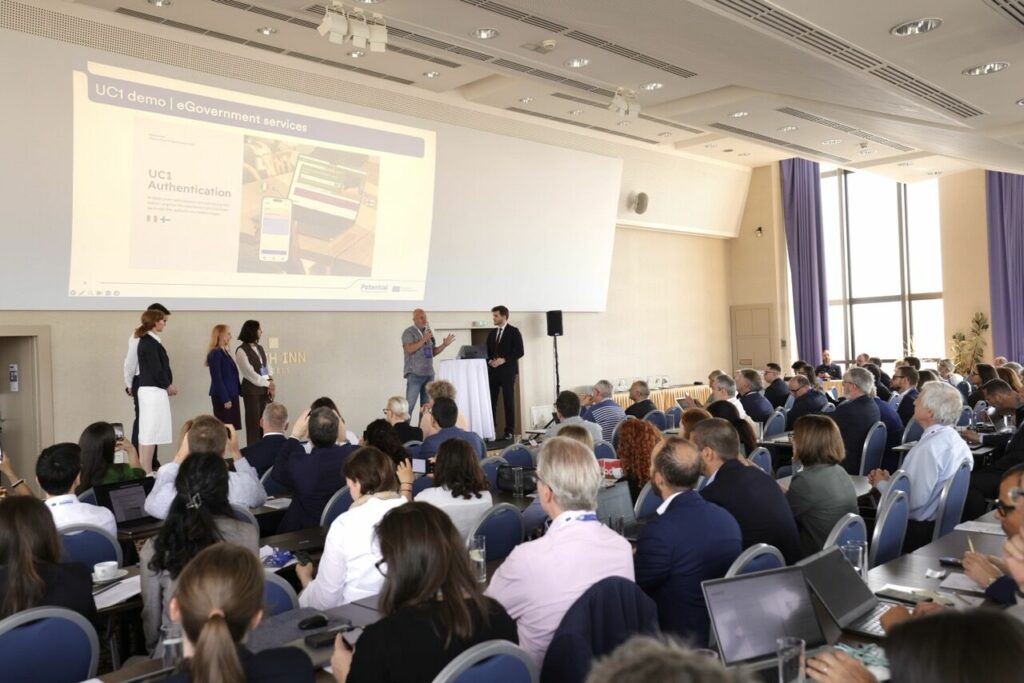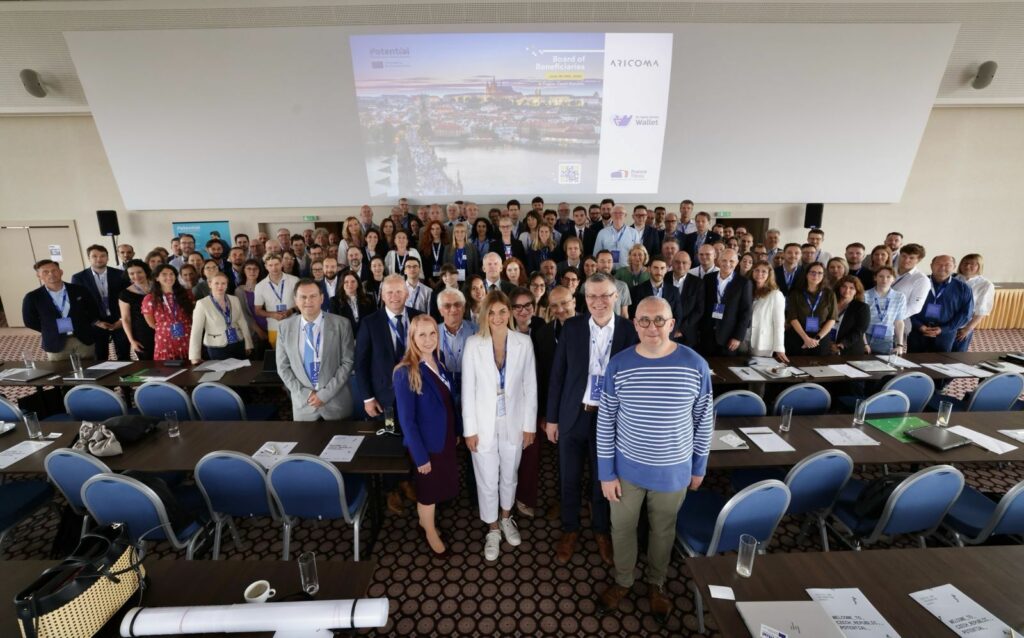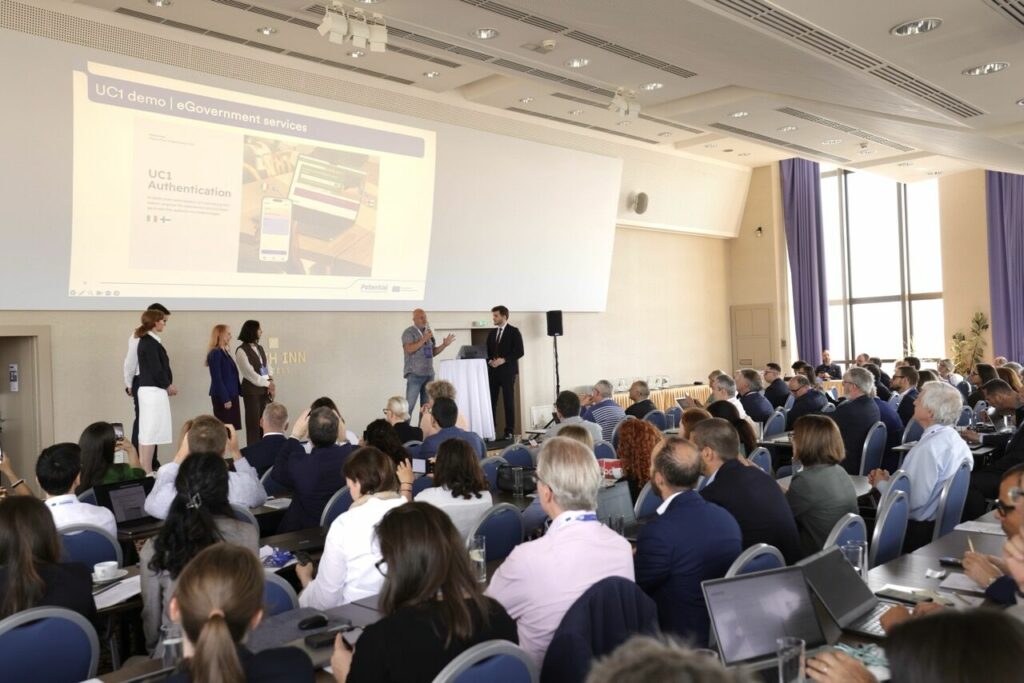The final Board of Beneficiaries (BoB) meeting for the POTENTIAL project was held in June 2025 in Prague, marking a pivotal milestone for one of Europe’s most ambitious digital identity initiatives. This culminating event brought together over 150 representatives from 19 EU Member States and Ukraine, celebrating two years of intensive collaboration to build, test, and validate the European Digital Identity Wallet (EUDI Wallet).

Highlighting European cooperation and technical achievements
The Prague BoB was both a strategic checkpoint and a moment of reflection on the remarkable progress achieved since the project’s launch in July 2023. Coordinated under the Digital Europe Programme and aligned with the EU’s 2030 Digital Decade strategy, POTENTIAL focused on creating a secure, interoperable digital identity ecosystem. Its core mission: to provide citizens with a trustworthy digital tool to simplify and safeguard access to public and private services across Europe.
Since its inception, the project united 155 public and private entities across borders. Key achievements highlighted during the meeting include:
- The establishment of the Architecture and Reference Framework (ARF), a technical backbone enabling interoperability between national systems.
- The rollout and validation of six use cases under realistic and cross-border conditions.
The successful completion of over 3,900 interoperability tests, both remotely and in-person, in cities like Warsaw and Vilnius.
Use case results and lessons learned
During the Prague meeting, each Use Case Lead presented final results, KPIs, and key takeaways from their pilots and test campaigns:
- UC1 – eGovernment Services Access: Over 500 unique cross-border transactions were conducted across more than 50 country combinations, validating scenarios for identification, authentication, representation, and proof of residence. Demonstrations included successful credential presentations across Member States, such as a Luxembourgish user updating their address in Slovenia.
- UC2 – Bank Account Opening: Thirteen countries participated, including ten as relying parties. A total of 722 tests and pilot runs were carried out in pre-production environments, with a success rate of around 76%. Scenarios involved the issuance and use of multiple (Q)EAAs such as Certificate of Residence, MSISDN, and Tax ID. Final KPIs and lessons learned will be consolidated by end of June 2025.
- UC3 – SIM Registration: The use case integrated nine relying parties and nine wallet products, including two private wallets. User feedback confirmed the potential of wallet-based SIM registration for better user experience and reduced operational costs. While relying parties expressed strong business interest, technical challenges remain, and a dedicated workshop has been proposed to address these.
- UC4 – Mobile Driving Licence (mDL): With participation from 16 countries, this use case tested 14 wallet applications and 8 relying parties. More than 3,000 KPIs were collected, with proximity use cases (e.g., police checks) and remote ones (e.g., car-sharing services) successfully demonstrated. Inclusion of ISO-compliant components further ensured interoperability beyond POTENTIAL’s scope.
- UC5 – Qualified Electronic Signature (QES): This use case developed two models—wallet-centric and QTSP-centric—based on established standards (ETSI, CSC). Successful pilot demonstrations validated the security, transparency, and user control principles behind the wallet-centric model, paving the way for ongoing standardization efforts.
- UC6 – ePrescription: Building on integrations with both eIDAS2 and the European Health Data Space (EHDS), this use case tested 11 wallets and 8 relying parties across 3 Member States, completing around 200 transactions. Progress was supported by dedicated bilateral testing and in-person piloting, including a proximity test event in Vienna.

These results demonstrate a high level of technical readiness and strong cross-border cooperation, reaffirming the feasibility of a pan-European Digital Identity Wallet ecosystem.
🇱🇹 Vilnius Interop Event
In preparation for the final Board of Beneficiaries, the Vilnius Interop Event (26–27 May 2025) played a key role in validating full EUDI Wallet workflows. With 1,300+ cross-border tests run by 34 entities, it directly informed the final KPIs presented in Prague.
👉 Read more
Looking beyond POTENTIAL
While the Prague meeting marked the end of POTENTIAL as a pilot project, it also signaled the beginning of a new phase. The infrastructure, tools, and methodologies developed under POTENTIAL lay a solid foundation for the broader rollout of EUDI Wallets, expected to become mandatory for Member States by the end of 2026, and recognized by private sector actors by the end of 2027.
By building on the values of interoperability, data protection, and citizen empowerment, POTENTIAL has not only proven the feasibility of a European digital identity but has also helped define the path forward for secure, seamless, and inclusive digital services in Europe.









